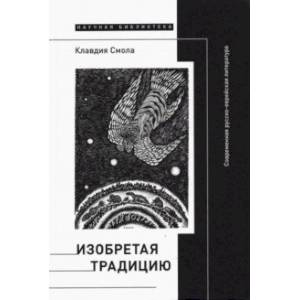Inventing tradition. Modern Russian-Jewish literature
Please sign in so that we can notify you about a reply
How does literature treat the Jewish tradition after a long period of assimilation, the Holocaust and the official (gender) prohibition of Jewry under communism? The process of re-having traditions begins among the late Soviet Jewish underwriting of the 1960-1970s and continues, as the prose of the 200-2010s shows, to the present. It is explained by the fact that Jewish literature is created for the reader of the post -human era, when knowledge of Jewry and Judaism is transmitted and accepted not from living media of tradition, but from books, paintings, films, museums and popular culture. Such sapestoric knowledge, however, is the result of not only political disasters, official oblivion and dictatorship, but also secularization, cultural resaking traditions inherent in the era (post) of modernity. It combines reconstruction with myth -making, a cultural translation with practices of creating a secondary - culturally indirect - collective memory, a scientist comment with folklorization. Placing Russian-Jewish literature in the general macrocultural framework of the era, the author turns to the theory of humanitarian thought of recent decades: the cultural semiotics of Yuri Lotman and Boris Uspensky, the works of myth of Mirchi Eliade, the geopoetics of Kenneth Whita, the theories of the cultural memory of Aleida and Yana Assmans, the post-in-the-rush of Marianne Hirsch, post -colonial and post -Persian research, as well as the heritage of poststructuralism. Claudia Smola is a philologist and culturologist, professor, head of the Department of Slavic literature at the University of Dresden (Germany)
Author:
Author:Smol Klavdia Olegovna
Cover:
Cover:Hard
Category:
- Category:Arts & Photography
- Category:Politics & Social Science
- Category:Reference books
- Category:Esoteric, Folklore & Myth
Series:
Series: Scientific Library
ISBN:
ISBN:978-5-4448-1574-8
No reviews found
